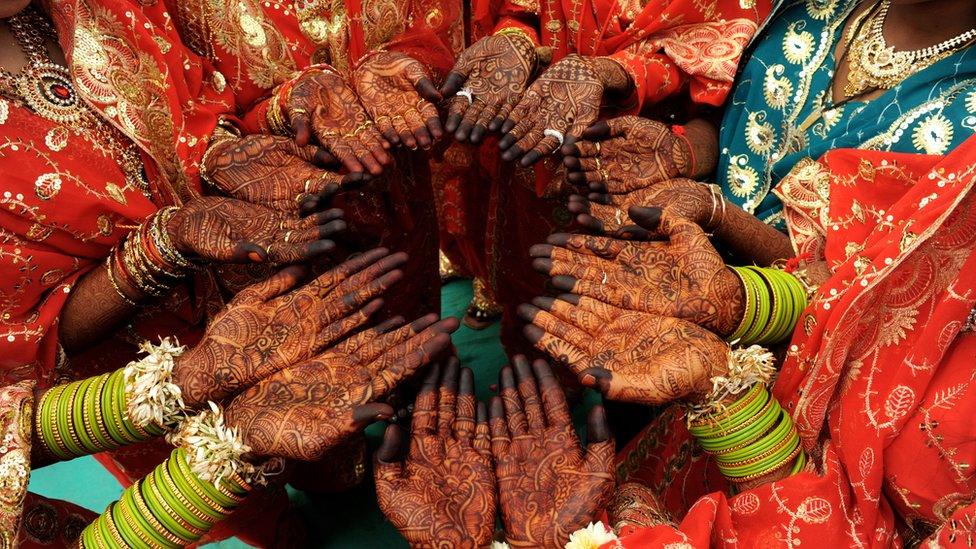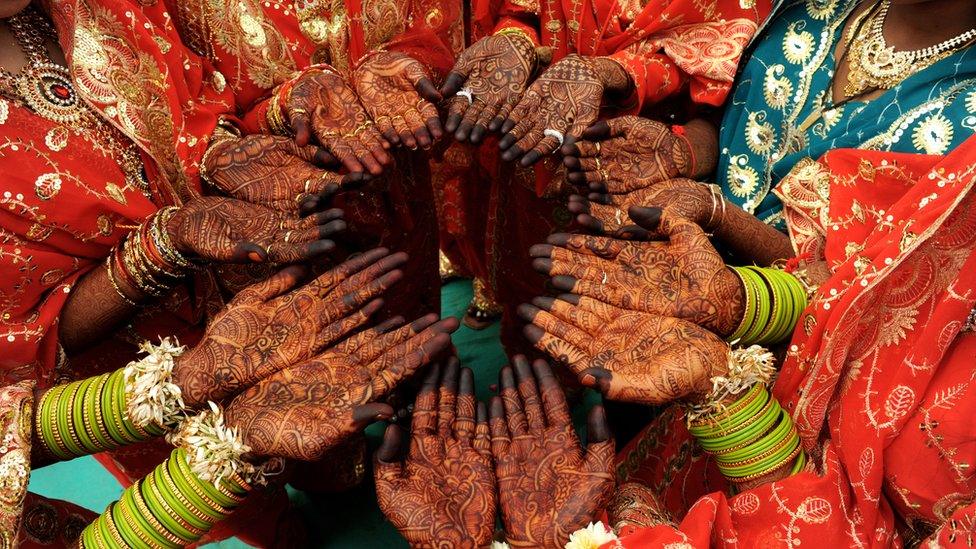India anger over Muslim board's 'patriarchal' remark
- Published

Activists say thousands of Muslim women have been divorced by their husbands by triple talaq
Women's groups and activists in India have criticised an influential Muslim group for saying that "men have greater power of decision making".
The Muslim Personal Law Board told the Supreme Court that men were "better at controlling emotions and unlikely to take a hasty decision".
The board's explanation came after Muslim women complained about gender discrimination in divorce cases.
Activists said the comments were "patriarchal, inhuman and unjust".
The Supreme Court is hearing several petitions challenging what is known as the "instant triple talaq" where a Muslim man can divorce his wife in a matter of minutes by just uttering the word talaq (divorce) three times.
"Their [the All India Muslim Personal Law Board or AIMPLB] stand that 'men have greater reasoning power compared to women' smacks of a medieval mindset and prejudice against women," the Mumbai-based Bharatiya Muslim Mahila Andolan (BMMA - Indian Muslim Women's Movement) and the All India Democratic Women's Association said in a joint statement.
"Their justification of polygamy and triple talaq contravenes the constitution and indeed the principles of gender justice in Islam. Triple talaq is unilateral and arbitrary. Nowhere in the Islamic world is triple talaq legal. We oppose it and demand a ban on it forthwith," the statement added.
The activists said the board should apologise to all women and ensure that their statements in the future were not derogatory to women.
Muslims are India's largest minority community with a population of 155 million and their marriages and divorces are governed by the Muslim personal law, ostensibly based on the sharia.
Women's groups and campaigners say the controversial practice of triple talaq is un-Koranic and must be declared unconstitutional.
Most Islamic countries, including Pakistan and Bangladesh, have banned triple talaq, but it thrives in India, they say.
Islamic scholars too say the Koran clearly spells out how to issue a divorce - it has to be spread over three months which allows a couple time for reflection and reconciliation.
Campaigners say men are now increasingly using text messages, Skype, WhatsApp or Facebook to pronounce divorce.
But the All India Muslim Personal Law Board (AIMPLB) says the divorce rate is still very low among Indian Muslims and that the issue is being blown out of proportion by forces inimical to Islam.
- Published11 April 2016
